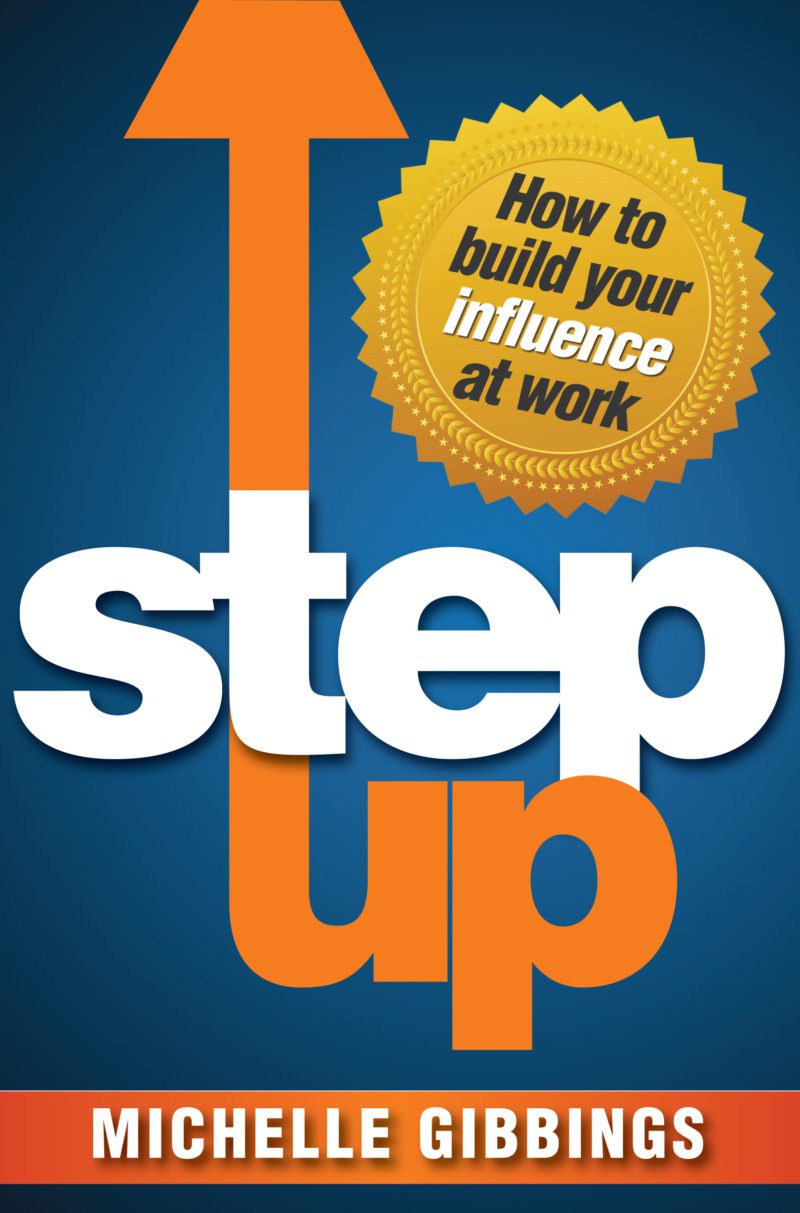043 – Stepping Up Your Career – Michelle Gibbings
Author - Step Up

Stepping from a technical role to a leadership position. From doer to influencer. It’s the start of an incredible journey.
Michelle Gibbings is the author of ‘Step Up’ – a terrific new book that helps us fulfil our potential in the workplace and in our career.
In this episode of the podcast she joined me to discuss the common traps for new leaders. How to plot a thoughtful and deliberate course that will allow us to rise above the noise at work and be noticed, become influential and lead in way that fosters trust and respect from the people around us.
If you are stepping up in your career – planning your next move, making the leap from technical expert to leader and influencer – this is a conversation you don’t want to miss.
Lessons Learned
Here’s what I took from the episode:
Leadership – A Realisations
The most important realisation a leader can have is that it’s not your job to be a technical expert, it’s your job to build a strong team, to support the team and help each individual develop.
A Trap for Young Leaders
Developing as a leader is a journey. No one is going to be awesome at it right away. Michelle reflects on some of the common mistakes she made as a developing leader:
- Not being willing to step in to the difficult conversations to support her team. She now realises it may mean she has conversations that are uncomfortable –
‘Having the difficult conversation early provides a better outcome’
- Lacking empathy – when things didn’t quite work out she would be less forgiving. As she has grown as a leader she has realised that everyone makes mistakes and having compassion and empathy for what’s going on for an individual – and being able to support them through it – means you will have better outcomes
As Michelle grew into her role as leader she learned to be more curious about things – people, situations etc – and not be quite so judgemental
Having Difficult Conversations
Difficult conversations are tough for both parties – the person receiving the tough feedback and the person giving it
The best method is to ‘give it to them straight’. There’s nothing worse than hearing someone fluff through critical feedback, attempting to couch it with artificial positivity
The more the teams knows and trusts their leader, the more honestly and effectively feedback can be delivered
The Best Advice…
The best advice Michelle ever received was early in her career. A colleague told her that it was fine to come to work every day, work hard and deliver results. But one day you will leave here and someone will take your place. They might not perform your role as well, or they might do it better. Either way, all that work you did will be forgotten. But what won’t be forgotten is the way you treated people.
How you treat the people around you and how you develop your team. That is the only legacy you will leave in this organisation
Your real work as a leader to helping the people around you develop
Lessons Through the Negative
While we are all learn and are inspired by the great leaders around us, there are also lessons to be learned by the poor leaders we encounter through our careers
Typically, we learn lessons – not what to do – by ‘leaders’ who don’t care about the people around them. People who are so absorbed with their own importance and what they need that they fail to notice the people they work with
Developing Influence
If you don’t understand yourself it is impossible to have influence – because you are not taking time to consider how you react to things, what assumptions you have to drive your thought process
Understanding yourself is pivotal to understanding other people and how an organisation works
Common Traps for New Leaders
- Not talking enough – some people in a new leadership role will lock themselves in their new office and not step out and talk to people, form personal relationships, communicate with the team or involve them in decisions
The best way to build an engaged and collaborative team is to get people involved – to find out their ideas, their strengths and to get a sense on how that team will come together
- Thinking you need to have all the answers – when a technical expert moves into a leadership role they make the mistake of thinking they have to have all the answers (like they did as a technical expert). That’s not the role of a leader – it’s impossible for one person to have all the answers.
As a leader it can be hard as a leader to say, ‘I don’t know’. But you should – you can lean on the wisdom of the group – that’s what a team is for…
Stepping Up
Here’s Michelle’s top tips for stepping up to a leadership role:
- Understand yourself – start working from the inside-out. Do you have a fixed or an open mindset? To be a good leader you must have the growth mindset
2. Understand that we all have biases. It’s tempting to judge others for the bias you see in them, but assume you are ok. The truth is that we all have bias. It’s important for you as leaders to work to understand the bias you have and the impact it has on the way you view the world and make decisions
3. Be clear about how you make progress in an organisation – influential people get things done. It’s not about power games – to Michelle influence is about:
– progress
– getting stuff done in an organisation
– having good intent
– building good stakeholder networks
– understanding how you communicate with people and tailor that communication so that your message is heard
– it’s not about just talking, but listening to
– understanding how to negotiate and deliver win-win outcomes
4. Build long-term, sustainable relationships – Michelle reminds us that this is a long game, don’t play a short game. So much of our success comes down to our network. Professional networks can be very small worlds – never burn a bridge.
Put Yourself Out There
Michelle has never been shy in her career of putting her name out there. She has made a point of becoming known to people in senior, decisions-making positions. She did this by offering them something of value – information, articles, research, an opinion. This meant that when there were opportunities available, her name was floating about in the right circles
It’s not enough to go to work and think that if I do really great work it will be noticed and opportunities will come my way
If you are doing really great work, but no one knows it, you won’t get noticed.
Part of being influential is that you do need to be noticed. You must have relationships with people in decision-making positions
But your efforts to build relationships and be noticed must be inauthentic.

Find Michelle
Twitter: @micheleegibbing
Web: www.changemeridian.com.au
Share this:




